Sometimes you get a second chance. Sometimes…… you don’t.
by Pringle Franklin
PARIS—The whole thing started because we kept getting caught out in the rain. Without a car, often we roamed around our new home on foot. When showers struck, Sam and I would dash under cafe awnings, pressed elbow to elbow with other wet passersby.
I felt impatient standing there, my day’s plans hijacked by the inclement weather. With goosebumps on my arms, I would peer out at the puddles, trying to gauge the temperament of the storm by the frequency of drops.
Couldn’t we enjoy the unscheduled stop by taking a seat and ordering a cafe au lait? I would hopefully suggest to my husband.
Mais non. Most of the time, Sam would refuse to spend money for an emergency coffee at a cafe. After playing out this damp scene several times, I decided to apply an ounce of prevention. I would buy a collapsible umbrella and stash it in my big pocketbook.
Being new to France, I wasn’t sure where to buy an umbrella, but soon enough we stumbled upon a display of parapluies at the neighborhood street market.
I was only looking half-heartedly at the Marilyn Monroe and Mickey Mouse waterproof fabric patterns — for 5 euros, they were clearly el-cheapos. But the lively Italian salesman poured on the charm. Most French vendors at the weekly marché are stiff, serving customers with ridiculously professional politeness. In contrast, this gregarious Italian entertained us in lilting English.
“Bruno” seemed to epitomize the rolling stone genre. He lived in his truck. Without a fixed address, he bragged that neither tax bills, parking tickets, his former spouse nor his jilted lovers could catch up with him.
Turns out that was ditto for his dissatisfied customers. Instead of buying one of Bruno’s umbrellas, we should have purchased Italian ice cream; it might have lasted longer. A brisk breeze twisted our new umbrella into an aluminum modern art sculpture. By then, Bruno and his truck were probably parked along the sunny boardwalks of the Cote D’Azur.
Feeling foolish for buying an obvious dud, I determined to try again. This time I would purchase a well-made umbrella, one that would last at least a year. Before long I discovered a chic umbrella boutique while I was wandering happily in the trendy Saint-Germain-des-Prés quarter. The tiny shop was all mahogany paneling and mirrored walls. The proprietress looked well coiffed and well dressed, as if ready for a ladies luncheon at the George V Hotel.
She invited me to make a selection from among her tres cheres parapluies.
I cast my eyes upon the spotless glass display box; a cream umbrella with inky sketches of a black cat sitting on the lamp posts and roof tops of Montmartre looked awfully cute. Typical  Paris kitsch, it was a mass-manufactured ode to Toulouse-Lautrec, but I have a black cat named Myrtle who was now Parisian. My brain instantly associated my kitty with the one contemplating the famous domes of the Sacre Coeur church.
Paris kitsch, it was a mass-manufactured ode to Toulouse-Lautrec, but I have a black cat named Myrtle who was now Parisian. My brain instantly associated my kitty with the one contemplating the famous domes of the Sacre Coeur church.
I was smitten. However, the darn thing cost 58 euros, about $65 based on the exchange rate of that day. The proprietress could sense my reluctance to spend that much on what is essentially a perishable item. With the severity of a French school mistress, madame instructed me how to protect the umbrella in case of heavy wind. She slid one hand to the top of its spine while placing her other hand down on the umbrella’s pommel. Then she held the umbrella close to her belly and titled it up, rather like a shield. Such prudence, she assured me, would prevail in protecting the umbrella the face of windy Parisian weather.
Reassured, I took a deep breath and counted out the euros, promising myself that I would never tell my husband how much I had paid. Without Sam to chastise me, I soon lost my buyer’s remorse. During the subsequent months, I was thrilled by my pretty umbrella. Wasn’t it lovely? Wasn’t I clever to have it? I would gloat to myself whenever my handy umbrella saved me from getting drenched.
Yet I sensed that I was overly attached to it. Umbrellas have a way of going missing in our household, and I feared losing it; I was hesitant to lend it to my family. By this point we had several other serviceable umbrellas from the Gap (quite a popular store in Paris, by the way), and I would always encourage the boys or Sam to use one of those instead.
Life reinforced my hoarding. One time Sam helped himself to my umbrella without my knowledge when he walked over to the American Library. Naturally he deposited the wet umbrella in the foyer with the others. The rain stopped while Sam perused the English-language spy novels and travel books in the deep, dark stacks, so he did not think about the umbrella when he left. Fortunately, a raindrop or two fell on his neck as he walked toward home under the trees in the Champ de Mars; instantly he realized his error and backtracked 10 minutes to retrieve it.
I am ashamed to imagine how I might have reacted if he had not rescued my umbrella. After that near miss, I became more careful about keeping it tucked away in my purse where it belonged. All went well until one spring day when a sudden wind encircled me and my open parapluie. My reflexes weren’t quite fast enough: as I was fumbling to get my upper hand firmly into place, one of the spindly arms of the aluminum frame bent and then snapped.
I managed by wrestling against the wind to keep the umbrella from twisting and breaking any further. From then on, It reminded me of a good-looking stroke victim who was left with a downward turn on one side of his mouth.
“Oh too bad, your umbrella is broken,” one of my sons had noted.
No way was I tossing it out. “It still works,” I said. “All I have to do is turn the droopy side toward the back.”
And that’s what I did, every day for about a month this spring, when it seemed the rain would never end. The Seine flooded enough to inspire weather casters all over France to make hokey references to le deluge de Noah.
Yet the parade of rainy days did not bother me. In addition to the umbrella, by now I had rubber boots, a rain jacket, and a plastic rain bonnet that makes me look like a British matron ready to invite someone in for a spot of tea.
Remember, my life in Paris was about walking everywhere. One day Sam and I got caught in a storm while rambling around the Bagatelle Gardens in the Bois de Bologne, and we were 30 minutes from the shelter of our bus stop. That time, rain had not been in the forecast, and I had left my umbrella at home. We clustered under the open arms of a giant fir tree with 12 to 15 other park goers like us, wet dogs trying to stay dry.
After that misery, I made sure to look through the balcony doors of our third-story flat each morning before getting dressed. Too often I saw cloudy skies above and people walking around below with trench coats and open parapluies. On one such day in April, I was preparing to head across town to French class, so I donned my foul weather gear and went out whistling into the wind. I was a pro at this by now.
Along my route to class, most people had dressed for the weather. A few careless souls held copies of the free Metro Daily News over their heads, trying to stay dry. I was feeling rather happy with myself for being so organized when along came a man wearing a three-piece velvet suit, the color of burgundy wine. He was not French. He looked foreign: brown skinned with shiny black hair slicked back and a bushy mustache over his lips — had I been in the United States, I would have pegged him as Mexican. In Paris, he would more likely be from North Africa or some far-flung spot like Sri Lanka.
Whatever his origins, the man obviously had an important rendezvous. He had taken the time to put on his best suit, yet he had nothing to protect him, and the steady rain was leaving dark marks on his velvet. His black eyebrows curved down into a surprised, anguished expression. He almost looked like he was experiencing physical pain.
I should give that man my umbrella, I thought.
No! He should have paid more attention to the weather and brought his own, came my internal rebuff.
My unspoken debate continued: You are well covered, with a hat and a raincoat and boots. You do not need the umbrella as much as he does. He probably has a job interview.
Despite this suggestion, my fingers held their grip, keeping the umbrella over my head. As I silently argued with myself, I kept walking forward, and the velvet-clad man scuttled along his way. A few seconds passed.
The moment was gone.
By the end of the next block, I felt terrible. Perhaps God had put that soggy man in my path, and I had chosen not to help. I spend time regularly reading Christian texts, as well as praying and meditating. Along the way, I have gained a foothold toward higher truth here and there, so I knew without doubt that this man and I were equal in the eyes of the Lord.
While he was a stranger to me, on another level he was my brother. And on another level still, he was a representation of Jesus.
Had I allowed Jesus Christ to walk past me in the rain, clearly suffering, and done nothing more than to feel sorry for him? I prayed for forgiveness and I prayed blessings upon the man whom I had chosen to ignore. I prayed that someone else, someone kinder, would help him.
It was no use; my prayers felt hypocritical and worthless. I could not shake my feelings of intense regret.
What would have happened if I had been generous to this man? How might his day, his life, have been changed? I tried not to obsess over these unanswerable questions, but there was one answer that rang loud and clear: God had sent me an assignment, and I had failed. It was a test of character, played out in a few seconds, a knee-jerk moment to be open-hearted or selfish, and I had chosen the latter.
As I continued my walk to class, I prayed that God would give me a second chance. It was still raining. Maybe He would send along another distressed person. This time, I would be ready. This time, I would gladly offer my assistance, even though it meant parting with my beloved black cat umbrella.
I scanned each person that I passed along the crowded sidewalks. No one appeared to be in need of a rescue. Some people waited under the cover of a bus stops; others rushed past, safe and dry under their own umbrellas.
A crew of workmen carried on repairing a hole in the pavement, soaking wet yet apparently invincible to the steady rain. I felt deflated when my walk ended outside the community center that housed my French classroom. I shook the raindrops off my umbrella, folded it up, and put it away.
Life continued, and the umbrella remained part of it. In July, we left rainy Paris for sun-drenched Greece, and I packed my parapluie as a parasol. I kept it with me as we stomped around the dusty ruins of Greek antiquity. We are slow moving in the mornings, as Sam and I enjoy lingering over coffee and breakfast, so it was often high noon before we were climbing the winding stone pathways to see this temple or that royal grave site. My sun glasses, straw hat, and sun screen were not enough protection for a pale creature like myself.
Yet as soon as I popped open my black cat umbrella, I felt the soothing comfort of having created my own shade. In Mycenae, the Japanese tourists looked at me with admiration for my foresight. I was prepared to do combat with the overhead broiler. It was so hot that the local dogs lay immobile, covered with dust and panting. With my umbrella, I was able to linger a bit longer in the heat, peering in wonder at the stone marker where the Apostle Paul had stood in the Roman market place in Corinth. As we worked our way around the Greek mainland, the umbrella remained my useful friend.
After 10 days of traveling across Greece, we arrived in steamy, crowded Athens. Naturally we wanted to visit the Acropolis. But we were typically lethargic in getting out of the hotel. The sun was scorching the nape of my neck by the time we were ascending the sacred hill.
Several thousands tourists from all over the world were swarming the site, and it was unpleasantly crowded. As we passed through the crumbled remains of a once-grand portal, I witnessed a dramatic scene between a mother and her young daughter. The girl was about 4 years old, and she had simply had enough. She stomped her foot and refused to go any further. Her mother stooped down, trying to convince her to buck up and keep going. They were speaking American English, so I could eavesdrop on their conversation.
‘“You had a chance to stay back at the hotel with a babysitter,” the mom reminded her. “You decided to come with us.”
The child wailed more loudly. The guilt trip wasn’t working so the mom changed tactics. “We won’t stay long. We just want to take a few pictures, and then we will leave.”
The mother was wearing a hat and sunglasses, while the child had nothing to protect her. Of course she had probably refused an offer of sunglasses or a sun hat back at the hotel, along the babysitter. I felt sorry for the little tyke but she would live and learn. Following the crowd onward, I headed to the peak of the hill, leaving them in my wake.
I could give that child my umbrella, I thought.
What? Here we go again.
In truth, it would feel awkward rushing over and interrupting their little tete-a-tete. After two years of living in Paris, I had become more cautious; I hesitated to get involved in the affairs of strangers. Also, the umbrella was too heavy for the small child, so someone would have to hold it over her. A fair number of other tourists were toting brightly colored Japanese-style umbrellas that an enterprising vendor was selling near the ticket booth. These were both visually appealing and small enough for a child.
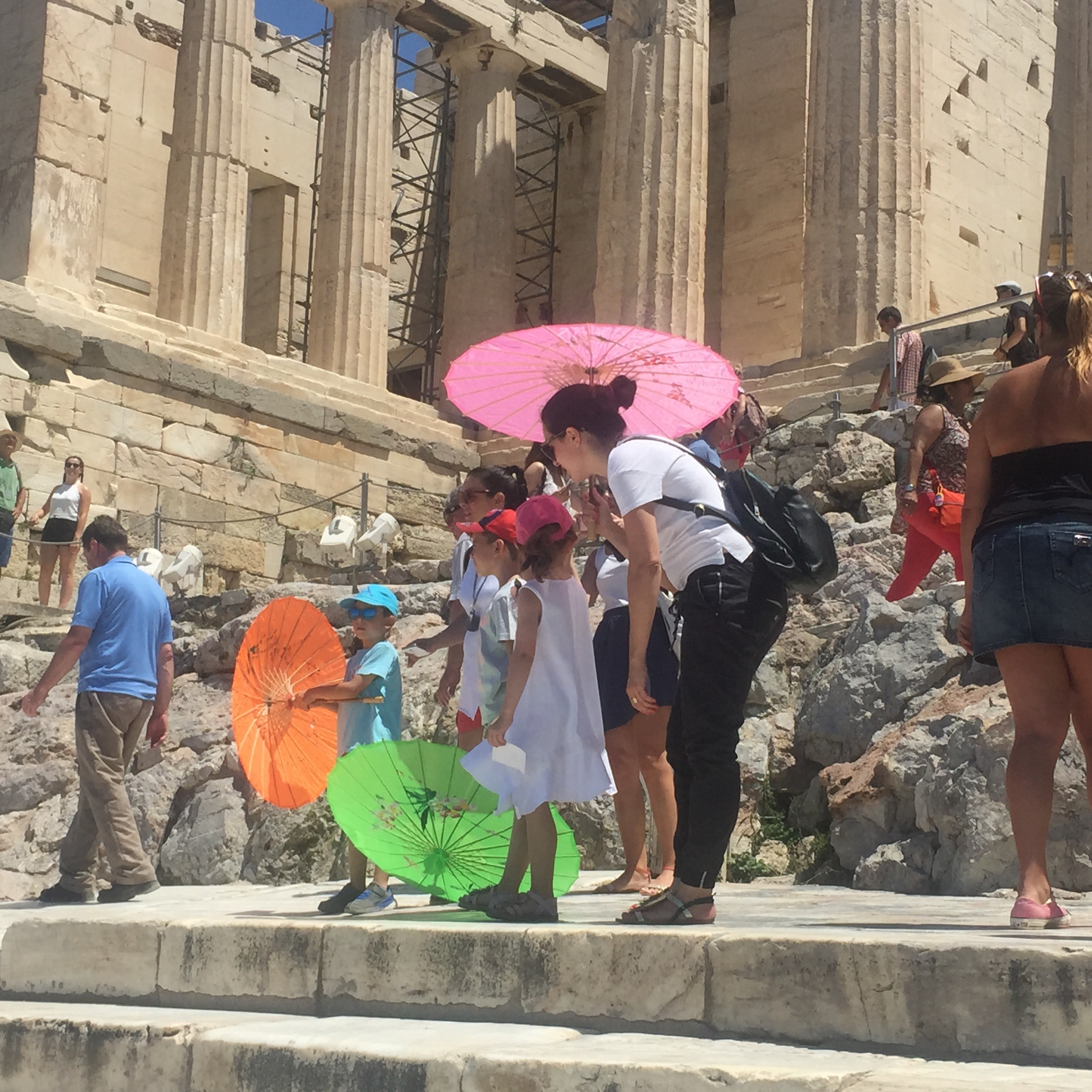 Her parents should buy her one of those Japanese parasols, I offered in rebuttal. Anyway she could have stayed at the hotel with the babysitter. She chose to come here.
Her parents should buy her one of those Japanese parasols, I offered in rebuttal. Anyway she could have stayed at the hotel with the babysitter. She chose to come here.
Here I was, arguing with myself again about the crazy idea of giving away my beloved possession. My back-and-forth thoughts were distracting me from admiring the magnificent ruins. I was looking up at the impressive stand of columns of the Parthenon, but my mind was agitated.
I took a deep breath and blew out air. Okay, okay. If I see them again, and the child is still upset, I will offer.
And there they were, about three minutes later when I came around one side of Athena’s famous temple; right beside enormous blocks of marble rubble, the little girl was still crying. Only this time, her father was trying to soothe to her. The mother was nowhere in sight; she had probably gone to the other side of the Parthenon to snap pictures.
Even as I was walking over to the father and child, some part of my mind was harping: those parents should have forced their child to wear a hat and sunglasses. I mean, what kind of parents are they?
Next thing I knew, I was handing my umbrella, now folded and cinched, toward the dad. “Here,” I said. “Take my umbrella for your daughter.”
He stared at me, confused.
“I saw her crying,” I said. “It’s very hot up here.”
The guy was polite enough to protest. “Oh I don’t want to take your umbrella. She’ll be fine,” he said.
“It’s okay,” I said. “I don’t need it. I have a hat. And sunglasses.” I managed to shrug, as if it were nothing for me to make this offer. (I learned how to shrug convincingly from the French.)
Upon hearing my words, the girl stopped crying. The poor child was looking up at the umbrella with big, hopeful eyes.
“Are you sure?” the father asked. “Gosh, that is really nice. I’ll tell you what, we’ll just borrow it for a few minutes and then we’ll give it back. But how can we return it to you?”
“It’s all right,” I said. “Really.”
“Well, we’ll just hang around over here for five minutes and wait and if we see you, I will return it,” the man said.
As I released the umbrella into his hands, he beamed. Then he huddled with his daughter as they began to open the umbrella and get her into its shade.
I waved casually as I walked away toward the far side of the temple. I would not go back for the umbrella. The giving needed to be whole.
For a few moments, I felt giddy. At last, I had managed to be generous. I had given up my favorite umbrella to a stranger.
Yet before long a worried thought began nagging me. What if they only used the umbrella for an hour on the hill, and then they threw it away? What if they thought it was trash because of its droopy panel? I could imagine that mom coming back and saying something like, where did you get that ratty old thing?
I felt a knot in my stomach. I wanted to run over, find them, and explain the entire history of the umbrella’s faithful service. But that would be ungracious. Instead, I prayed.
“Please God, let the umbrella be as much of a blessing to them as it has been to me,” I begged silently. That was all I could do.
Then something unexpected happened. Up on Athena’s Hill, I received a gift — of wisdom. New awareness came rushing into my mind as if spoken from above:
You are not responsible for how someone receives or appreciates your gift. You are only responsible for your attitude while making the gift. God honors you for your part; the rest is not your concern.
Immense relief rushed into my body. For the first time, I understood something that applied to much more than the umbrella. All of my life, I have determined the rightness or wrongness of any gift or act of service by the reaction of the recipient. If he or she was grateful, I felt good. If he or she was unappreciative or disrespectful of my sacrifice, I felt foolish or perhaps wronged. I had viewed giving as a two-way street. And here I was being told no, that’s not how it works.
In that moment, I understood that it simply did not matter what happened to the umbrella; it was enough that God had granted me a second chance. I did not tell my family about my act because I did not want to have to justify my odd behavior. I thought it was over, finished, complete.
But back in Paris, I was cleaning out a drawer of handbags and gloves about a week later when I happened upon the fabric sleeve of my black cat umbrella. My heart lurched as I stared at the adorable pattern, the kitty perched on a lamp post overlooking Montmartre. For an instant, I was sad. I missed my umbrella.
Then I shook away the sentiment of attachment and denied it further to access to my thoughts. It wasn’t a real regret; it was just an old reflex.
Psalm 103: 11-14
For as high as the heavens are above the earth,
so great is his love for those who fear him;
12as far as the east is from the west,
so far has he removed our transgressions from us.
13As a father has compassion on his children,
so the Lord has compassion on those who fear him;
14for he knows how we are formed,
he remembers that we are dust.


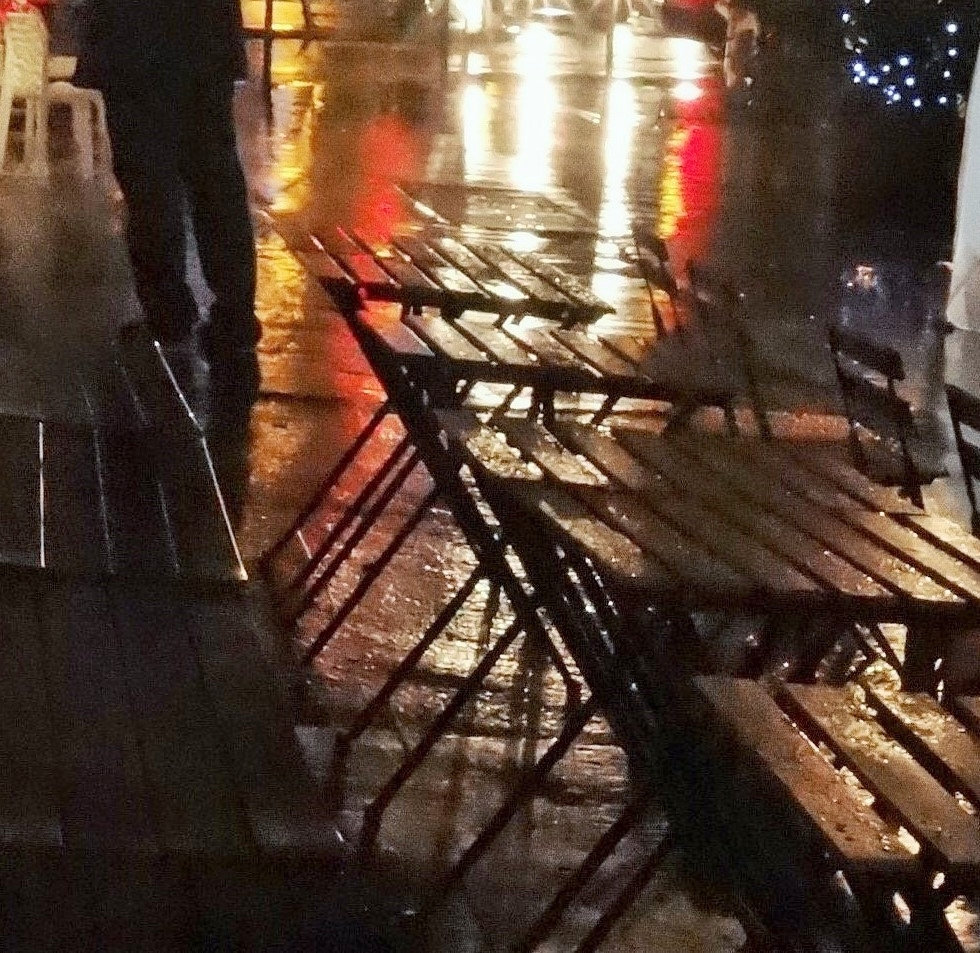
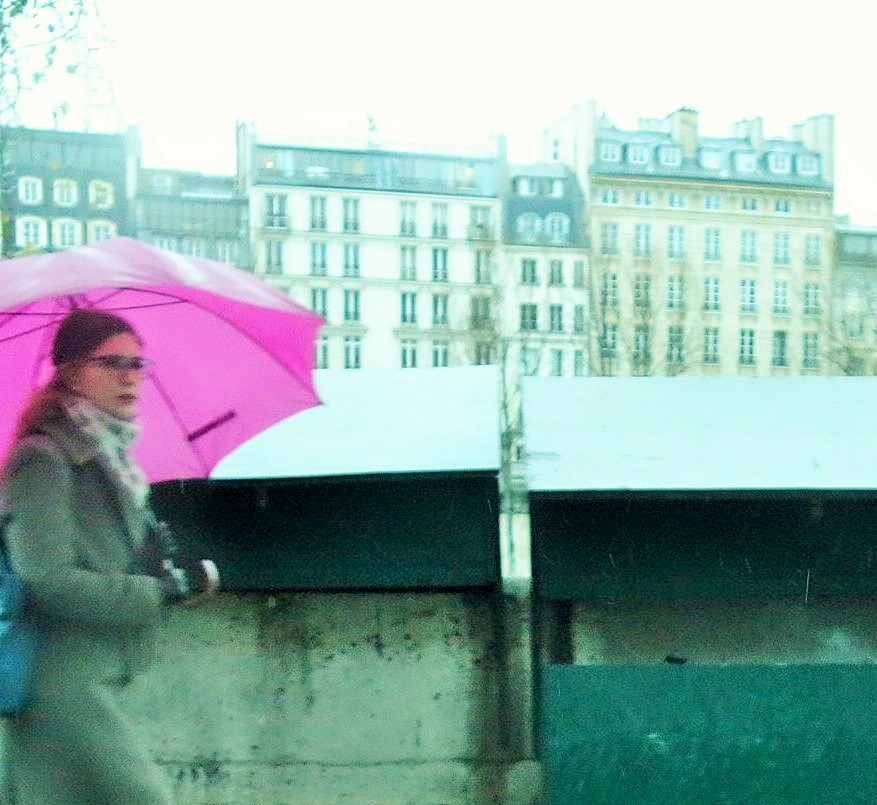
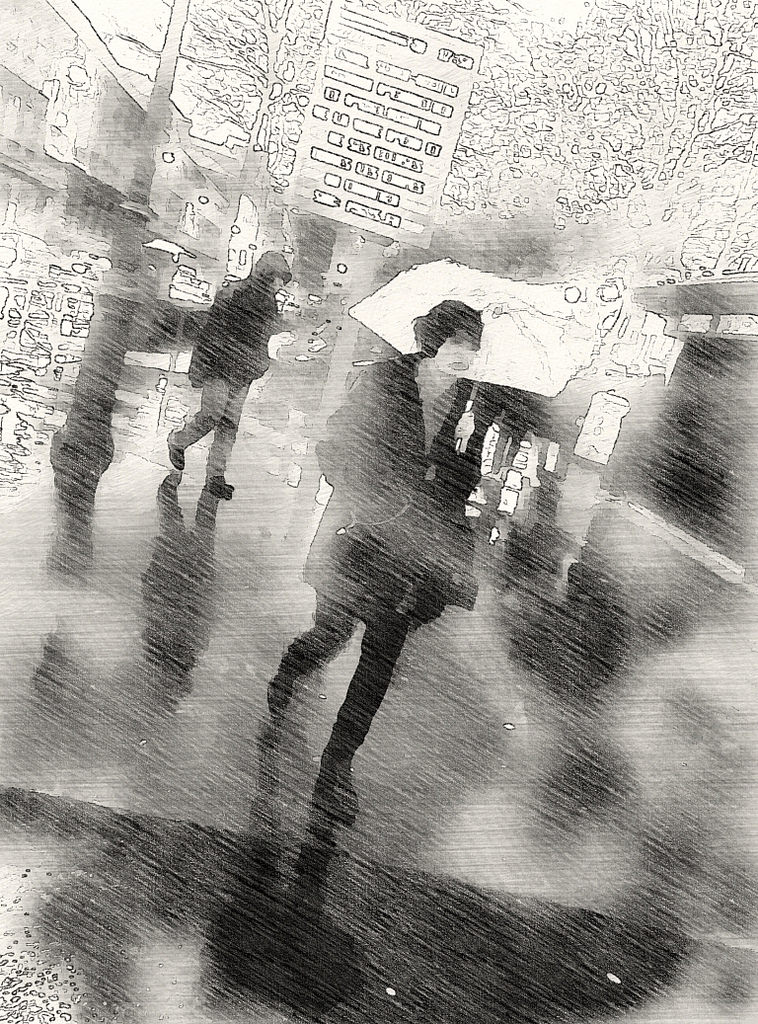
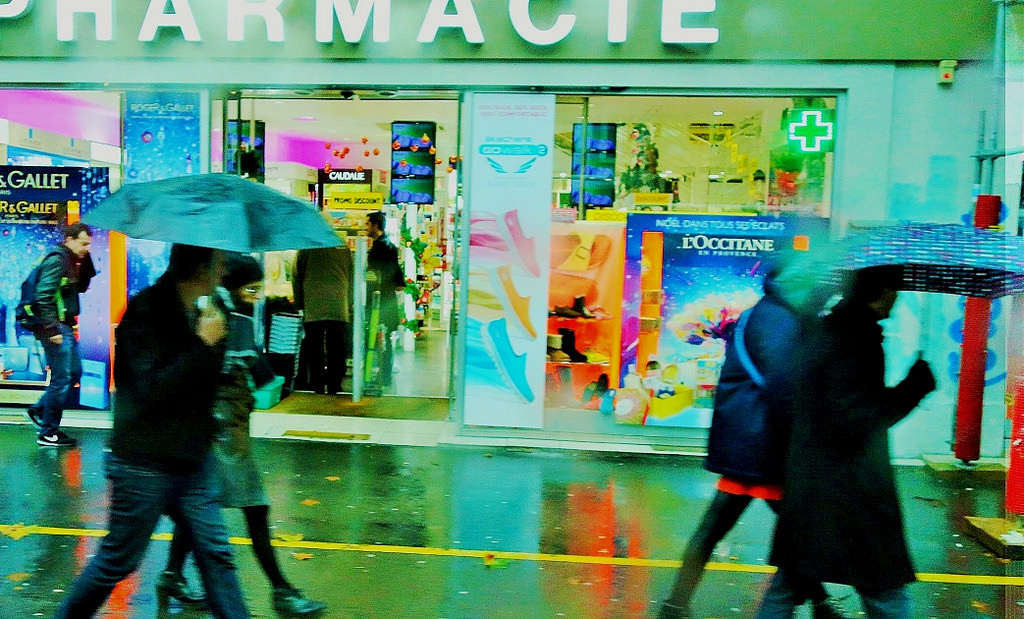
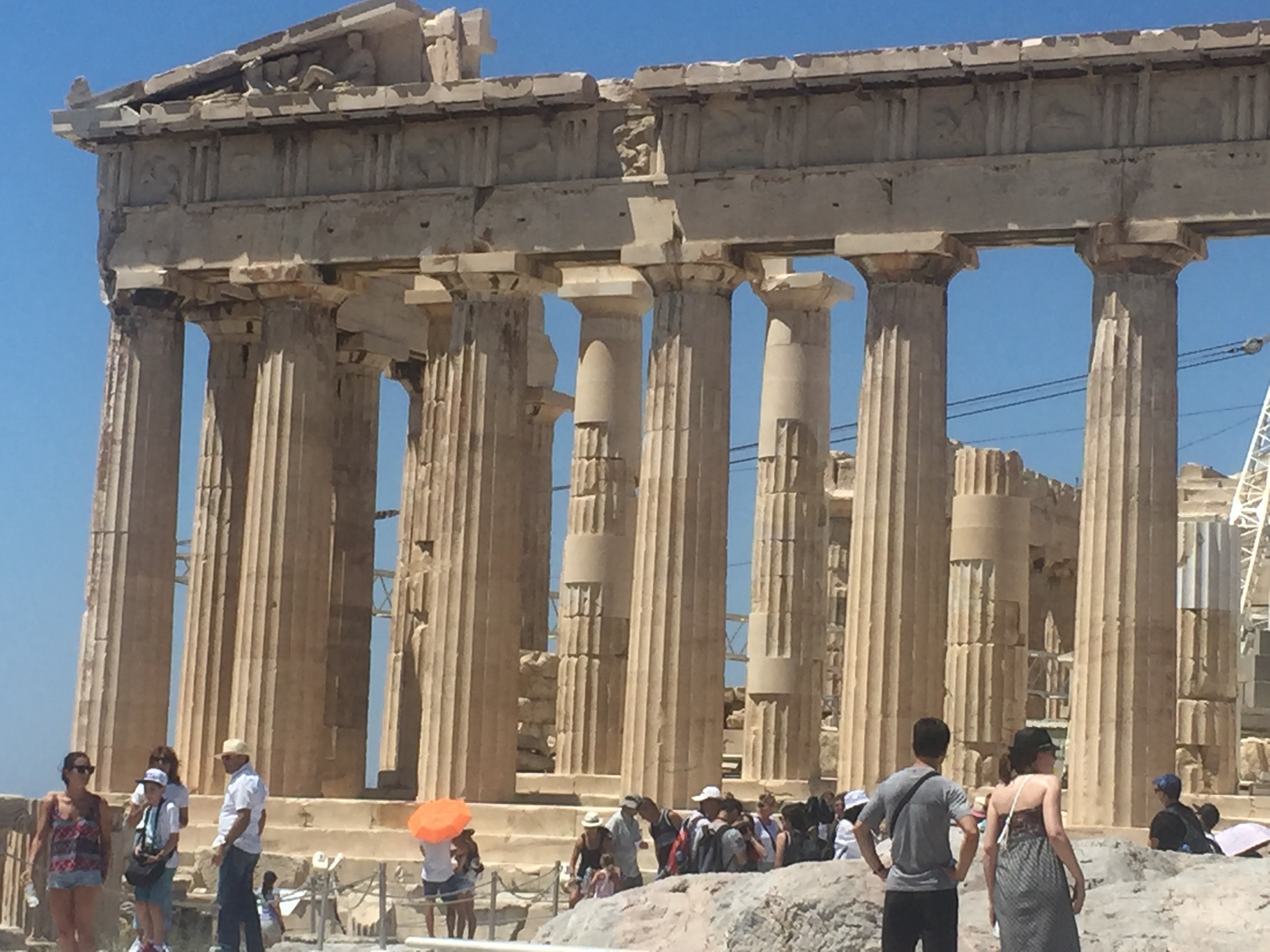
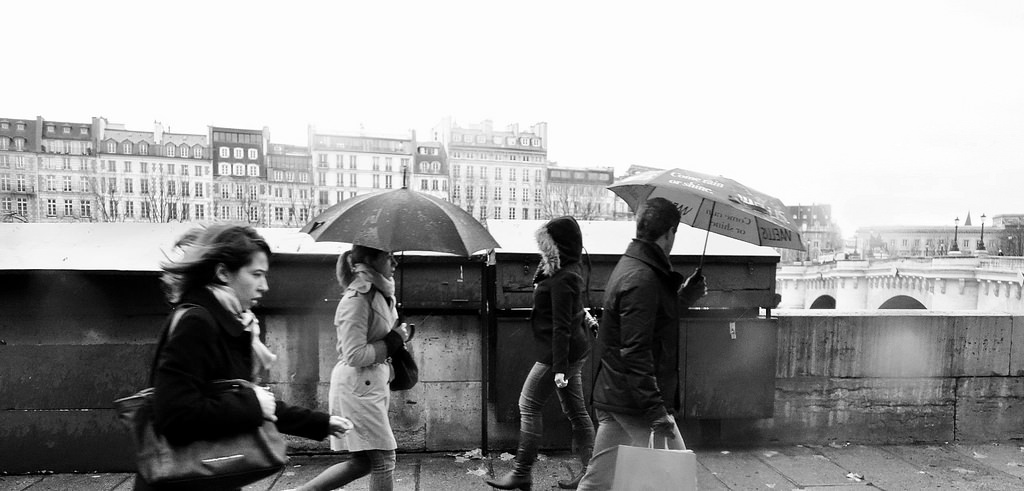

7 Comments
Pringle, Thank you for your lesson on obedience, It is never easy but usually surprisingly fulfilling. Preston
Love this! I can’t help but remember back in St. Louis when we took a meal to a family at Christmas and I was sooo excited to see the children’s faces when they got their gifts etc. and then the bubble burst when the mom wouldn’t come downstairs and we wound up giving the food and gifts to a man who lazily got off the couch and was in his underwear. I was so sad and surprised. Now after reading your piece, I realize it was more about me and the happiness I was going to get through their reactions than it was about the food and gifts making their holiday better …. sometimes it’s hard to understand when you don’t get the anticipated response. Lesson learned – give unconditionally
Natalie: I have never forgotten that story of you giving a holiday to those folks who were most ungrateful. Never! Because it hurt me to hear you tell about it. I have had a few experiences in Paris where I gave a sandwich to a homeless person and got the same reaction, basically just a glare. Most of the time, the men or women on the street smile and show that they are truly happy to get food but every now and then, the guy would just glare and I would feel cheated somehow, like I had been wrong to reach out to him. This is a hard lesson to learn but it is a relief.
Sometimes I think Sharing can be looked on as a miracle from God. And thanks be to Him for that miracle.
Pringle, I love this piece. You have reminded me that I cannot, nor should try, to control others reactions. Showing kindness serves however God wants it to. That is way more than enough. Love you.
Hi Pringle, When I was in Rwanda, or here in the USA for that matter, I also learned that when I give money or food or whatever to others, such as your umbrella, that I am in reality giving it to Jesus. What the person does with my gift is between her and the Lord. I pray to be wise in all of my giving. But ultimately, it all belongs to Jesus anyway. Thank you for sharing! And welcome back to America! I’ve moved and look forward to visiting with you, once you are settled. With all sincerity, Martha
Pringle that was a wonderful story and thank you for sharing. So happy you will be home soon.